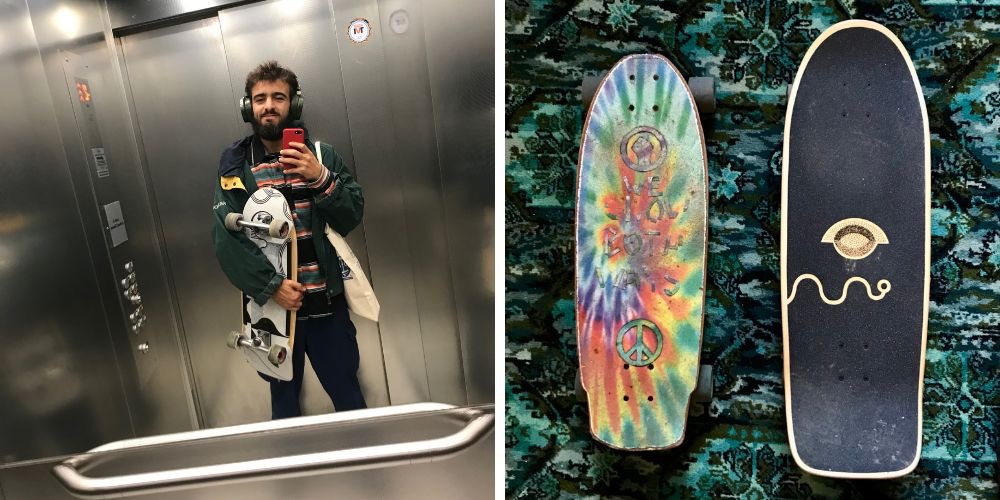
#1: I don't drive - but I survived a year in Malta (...just about)
22.08.2023 - Vienna
Since last September, when I first arrived in Malta, I put myself through a rigorous experiment: trying to live a full life - or as full of a life as I could afford to live - as a skateboarder and pedestrian, and not a driver - in an asphalt sea of idling engines.
This choice was one based on my resolute unwillingness to drive a car, or ride a motorbike. I know I wouldn’t be a good driver (I know myself well enough to know that my worst impulses would be triggered and amplified if I were behind the wheel).
More importantly, driving isn't good for people or our planet.
Particularly in the Maltese context, when distances are short enough for alternative modes of transport to make so much sense, I’ve come to see driving as yet another way for wealthier workers to segregate themselves from one another, and those beneath themselves on the socio-economic scale.
Driving everywhere is also a great way to never, or rarely, have to face the reality of Malta’s pedestrian infrastructure - which can’t even fairly be described as “crumbling”.
No, this particular cookie crumbled a long time ago. These pavements are not just dilapidated, they are devastated.
Getting around on those pavements on a cruiser - which is, in the right hands ,(under the right feet), a very agile craft - is difficult.

Malta's sidewalks are narrow, cracked and slanted, and they have a wonderful habit of disappearing entirely because the road needed to be wider, to accommodate the ever-increasing girth of an ever-growing fleet of roaring wankmobiles.
I insisted on skating because I love skating, and because it is honestly just such a great way to get around. I rode pavements where I could, but a lot of the time, my choices pushed me onto the road.
Are you now thinking, “you should consider making better choices”?
If you too are a relatively irresponsible individual, prepared to get a little bit hit by a lottle bit of cars, you can make it work. I did.
Full transparency caveat: that success did include, on one occasion, getting hit by a cars. Whoops. I was fine, somehow.
It is clear, particularly through autumn, winter and spring, when fewer tourists are in Malta, that buses are being used primarily by Third Country Nationals - along with local residents who are not yet old or rich enough to buy and drive their own cars.
The buses are free for residents, which is a legitimately great initiative, but the effectiveness of the service being offered is extremely limited.
Buses drive the same roads as Malta’s 400,000+ cars, and they very rarely get the benefit of bus lanes. Even when bus lanes are in place, drivers regularly circumvent regulations and treat those lanes as an uber-convenient fast lane.
This means that buses are stuck in traffic just as much as are cars. The solution to this is to reduce the number of cars, and increase the number of buses on the roads, but that isn’t going to happen because people in Malta are obsessed with their cars. What they think is a love affair is actually more akin to an abusive relationship. Maybe it’s both.
Some say that they would consider abandoning their cars if they could instead depend on a reliable system of public transport, but I have yet to encounter anyone who has made this leap.
Their rationale is that to do so would be too significant a sacrifice. The “convenience” of driving a car just can’t be beaten, and if you are to give that up, the amount of time and effort you have to put into travel rises exponentially.
Frankly, people continue to reason that if they’re going to be stuck in traffic (and if you live in Malta, you will regularly find yourself in this position), you might as well be in your own personal vehicle, rather than having to contend with an unfortunate reality: other people.
I spent just under a year living without a driver’s license, car, or desire to have either. I got around fairly well with the help of a powerful trifecta: Google Maps, free public transport and Ola. Ola is a beautiful beastie, though time (and excessive use) does take its toll.
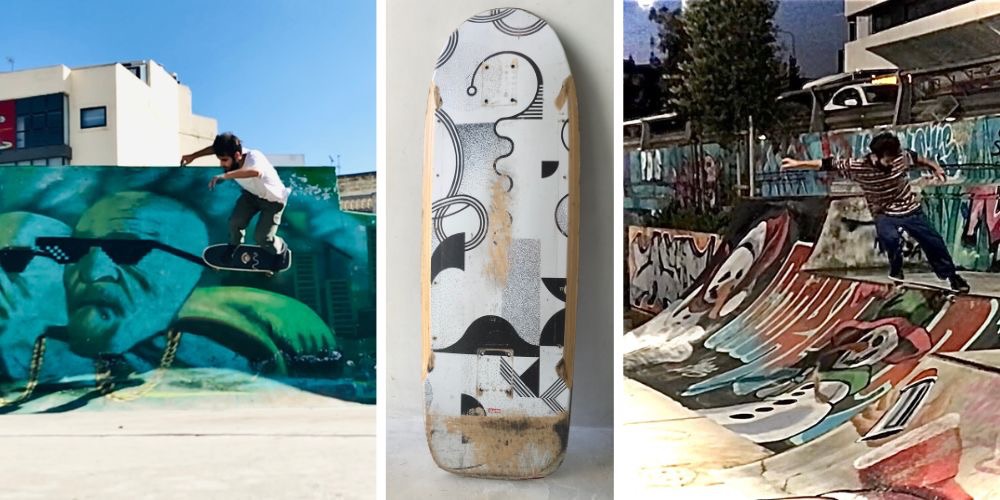
I never knew that the ability to roam aimlessly was so deeply essential to me before the year I spent living in Malta. At every misshapen, cracked and poorly constructed infrastructural step, I was actively discouraged from doing so.
Almost immediately, when I planned to go anywhere, I scrambled to pick up earphones and a skateboard. Don’t get me wrong, when I reach to either of those for the right reasons, that isn’t negative. This wasn't for the right reasons.
They were being used as tools allowing me to block out as much present world as possible.
Cruising me speedily and (fairly) smoothly through that present world was a necessity, because the energy expenditure caused by engaging with it wore me out so thoroughly that it amplified the multifaceted existential dread inherent to a the experience of living through a worsening climate catastrophe.
Engaging with much of that outside world - particularly on all of the hideous routes connecting stunning spaces - made me feel doomed.
Malta is a beautiful place. It was, within even my lifetime, even more beautiful. Within my parents’ lifetime, it has become unrecognisable. My grandparents have known transformation I will never be able to understand.
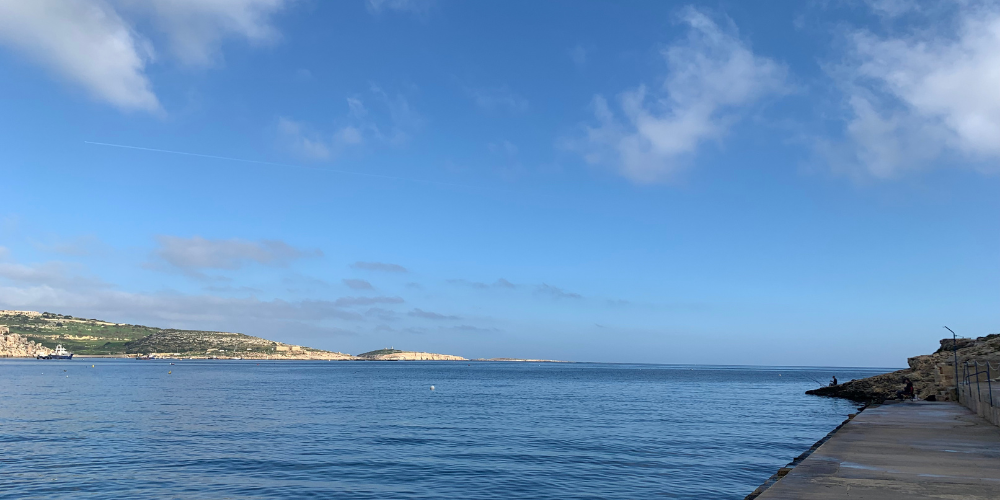
Still, it is beautiful.
The sea remains magnificent. Certainly, it is struggling, as we've force it to pursue a new balance, but it remains incredible as it does so.
It is overfished. There are noticeably fewer healthy, thriving reefs.
Because baseline sea temperatures are on a continuous rise, there are significantly fewer sea urchins and significantly more jellyfish. Waters are warming to such an extent that rocks in the shallows are warm enough to incubate and sustain the growth of slimy, pond-like algae.
Granted, these are anecdotal changes, things I noticed which were never presented before throughout my brief lifetime.
But I won’t ever dismiss the power of the sea, or the resilience of the life within.
On land, life is struggling too. Though much of that struggle is human, it is clear to me that our strife is both cause and symptom. We are destroying the likelihood of having any thriving natural spaces, and seem powerless to end the destruction we know is killing us.
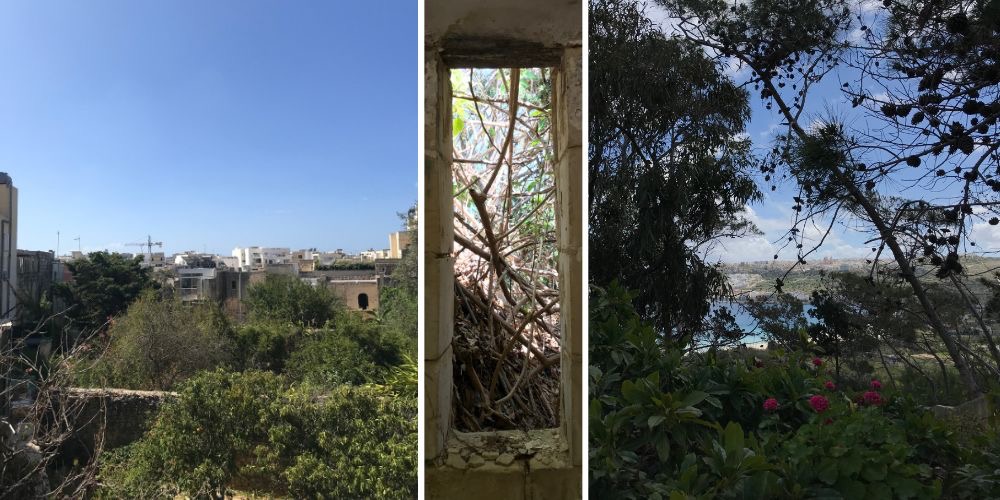
Corners of indomitably resilient, patchy, scraggly and heavily intermeshed flora can be found all over the place. Native plants have been imbued with some magic genetic concoction of desert island mutation - and the power of salty sea air.
Throughout much of the year, these plants have an impressive ability to make not-so-arable and often scorched soils appear to be brimming with nutritious value - as though Maltese soils have been mingling with once molten, deep-earth minerals left behind by some devastating volcanic eruption.
They aren’t, though. The closest thing to a volcano, in Malta, is the “mountain” we built out of literal garbage. In all fairness, at the top, and amongst the ever-growing piles of trash, there actually is a waste incinerator…
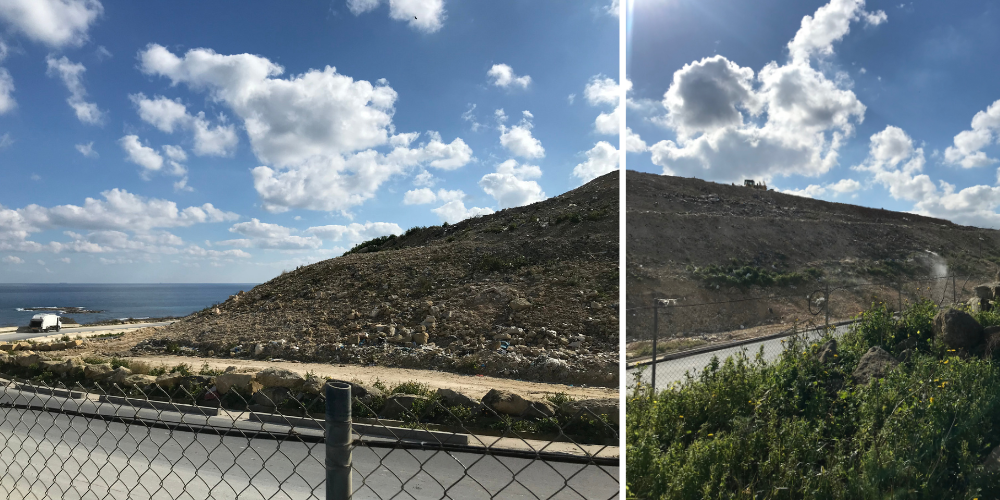
Plant life in Malta is genuinely impressive. I had many misgivings before being there, and have even more now that I’ve left, but for most of the year, Malta is so green that it can very well trick an individual into thinking that it might even be able to remain habitable for humans.
I actually believe that overall, life there will survive significantly longer than humans will. Our ability to “adapt”, at least on the individual level, seems to be limited to “installing an air conditioning unit”.
ACs are actually a pretty great metaphor for our collective predicament.
Because we’re emitting so many greenhouse gases, our planet is warming.
Because we’re letting it warm enough, parts of it are becoming unliveable. To "solve" this problem, we turn to AC, which makes a tiny part of this world liveable at the cost of significant greenhouse gas emissions and energy use, ensuring that the rest will become even more unliveable very soon.
This is a collective struggle, caused by a critical mass of individuals acting in their own self interest - seeking out their slice of paradise. Unfortunately, we only seem to know how to create it by endangering everyone else’s.
Plant life in Malta will continue to thrive long after the last people have left. We haven’t built anything, from our infrastructure to ourselves, to be prepared to fight tooth and nail for every scrap. Nature is born to survive the scrap. That instinct lives in us too, but it’s buried deep.
So far, few of us have shown real signs of engaging with it. That’s a problem, because the climate scrap is upon us.
Natural life in Malta has been fragmented. Passages have been cut off by ugly buildings, hideous roads and unnecessary construction projects. That fragmentation doesn’t just stop hedgehogs from mingling, though they really are getting a raw end of this deal.
Sidenote: Imagine your instinctive defence mechanism was: “roll up, tight ball, will be protected by tiny, relatively soft, spikes” - and you're trying to cross a road to get to the next field where you intend to hang out with your little hedgehoglets.
You were going to be a great role model, helping to guide your progeny towards their best possible hedgelives.
Alas, twas not to be, your defence mechanism got pancaked under a tire - so a human could get to a place within walking distance.
Buy hey, at least they got to go there fast.
The fragmentation also applies to people. The vast majority of people in Malta view the rest of the population through two sets of car windows.
They don’t tend to talk, unless they’re yelling at each other about some traffic manoeuvre which was actually a Highway Code violation on both their parts - and they’re often irritated by the “traffic” they see all around them.
You cease to see those around you as people, in traffic. They’re traffic. You are too, of course, but you’re also the main character stuck in a sea of traffic - which is made up of mindless assholes who need to get out of your way.
I had my own response to traffic, this year. When my bus I was on hit a standstill, I’d be out at the very next stop.
I’d be out and on the road cruising past idling cars while their drivers yelled at me, honked their horns to express the depth of their jealousy, and on a few occasions, lurched their cars dangerously to inhibit my passage.
My response wasn’t better for the collective than theirs. I was just enjoying the suffering of those stuck in traffic, antagonising them with my blissful life choices.
It didn’t consciously start that way, I was just trying to get around.
It became a conscious antagonism when I realised just how much everyone there believed that everyone else was in their way. That meant that when you saw somebody doing well, they were doing so at your expense.
Malta felt like a place which didn’t have enough to go around, but not because there wasn’t enough to go around.
It felt that way because there were too many people wanting, and taking, significantly more than their fair share. What was left over was... not enough to go around.
Malta is not overpopulated. It is overdriven. A landmass of its size could support this amount of people, or significantly more, if it had proper public, rather than car-focused, infrastructure. Mass transit could solve a huge portion of the people’s problems.
Ban cars - except maybe in the case of emergency service vehicles. Yes, it would take political will to embark upon the sort of transformations I’m suggesting, but it would also take popular will.
Individuals alone are not the solution, but collectively, they can force the hand that feeds - and prevent it from continuing to feed its petro-fuelled poison.
blog the first signing off
0 Comments Add a Comment?